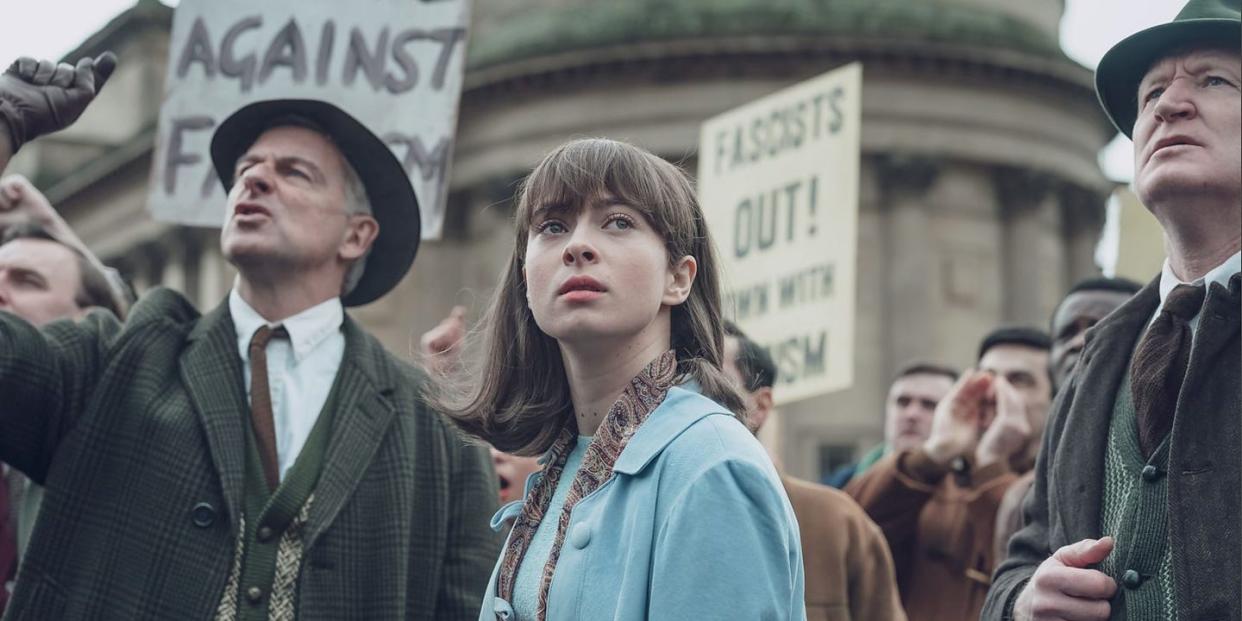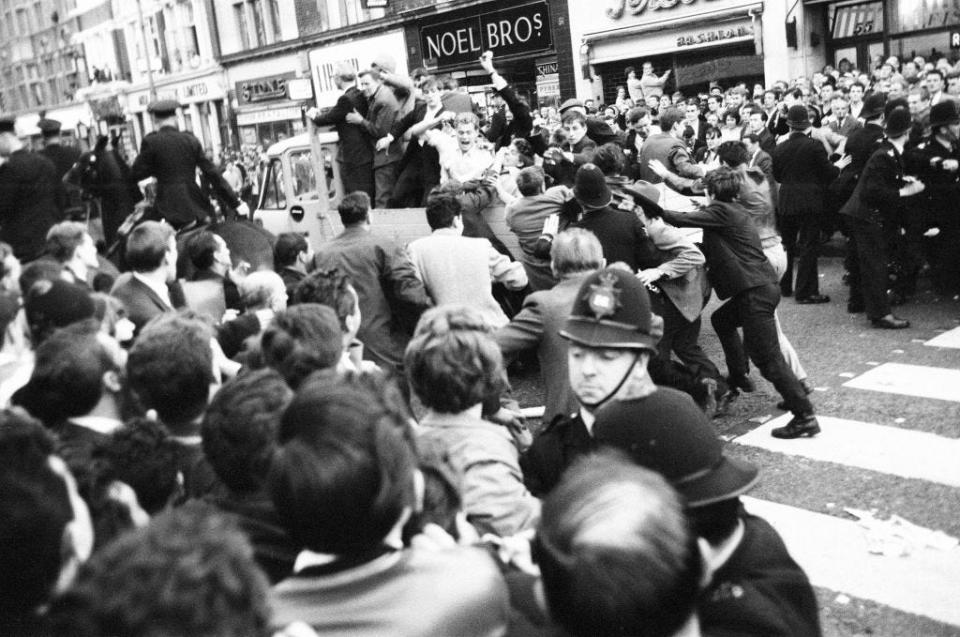The True Story Behind Ridley Road

- Oops!Something went wrong.Please try again later.
- Oops!Something went wrong.Please try again later.
The PBS Masterpiece miniseries Ridley Road is a gorgeous period drama that tells the dark story of when fascism reemerged in 1960s London under British neo-Nazi Colin Jordan. The show focuses on Jordan's National Socialist Movement (NSM), which was openly antisemitic and targeted Jewish institutions, and the resistance to NSM, led by British Jews in an organization called the 62 Group.
The protagonist of the show, Vivian Epstein (Agnes O'Casey), is not directly based on a real person—though she is the main character of Jo Bloom's 2014 novel Ridley Road that the show is adapted from. Vivian's uncle, 62 Group leader Soly Malinovsky (Eddie Marsan), and boyfriend, Jack Morris (Tom Varey), who goes undercover into the NSM, are also not specific depictions of historical figures. However, Sol and Jack are broadly based on Jews who decided to fight back against the neo-Nazi movement in Britain. Plus, Rabbi Lehrer (Allan Corduner) in Ridley Road is inspired by the real Rabbi Leslie Hardman, a Jewish army chaplain who was at the liberation of the Bergen-Belsen concentration camp.
Bloom specifically drew on British Jewish history for her novel, and the story was sparked by meeting an elderly British Jewish man. She explained, "He'd been an active anti-fascist all his life and when he mentioned the 62 Group, a Jewish organisation which formed in 1962 to confront a resurgence in fascism in London, I knew I had to find a way to tell the Group’s story—how, less than 20 years after the end of the Second World War, British fascism had reared up again."
At the end of World War II, fascist groups were emboldened in the UK. As Jewish culture site Hey Alma explains, "the far-right continued to organize and speak publicly, spreading anti-immigrant and anti-Jewish messages. There were weekly fascist rallies in Ridley Road Market in Hackney, a predominantly Jewish neighborhood in East London. In fact, by 1946 there were as many as 40 weekly fascist meetings and rallies taking place in the city every week. Many areas of East London were known to be unsafe for Jews; simply walking there could mean running into a fascist group and being beaten up."
In response, 43 Jews met at at Maccabi House, a north London Jewish community center, and decided to meet fascist intimidation with anti-fascist violence, forming the 43 Group. The group eventually swelled to significantly more than 43 members, and they voluntarily disbanded in 1950, when they felt the threat had dissipated.
Twelve years later, fascist groups were once again on the rise. For example, in July 1962, Colin Jordan held a rally in Trafalgar Square where he praised Hitler, the "Sieg Heil" Nazi salute was made, and slogans like "Perish Judah" were shouted in the crowd. In response to this increased fascist and antisemitic activity, taking inspiration from the 43 Group, Harry Bidney, a Jewish Soho night club manager, gathered a group of Jews, once again, to fight back. They were called the 62 Group (after 1962, not the number of Jews in the organization).
"There was a lot of controversy at the time about the tactics of the 62 Group because they were not afraid to use violence," Ridley Road writer Sarah Solemani told PBS Masterpiece. "But back then, fascists were deliberately marching in Jewish areas. The logic of the 62 Group was, 'Well if the law isn’t on our side and we’re getting beaten while fascists are calling for our demise and destruction, then we have to physically protect ourselves and scare them away.'"

"It was simple—we did what had to be done. These were Nazis beating up Jews," Gerald Ronson, a British businessman, told the Times of Israel of his time with the 62 Group. “I felt we couldn’t tolerate this. We didn’t have knives or guns, but we did what was necessary to protect Jews. Bad people had to be taken off the streets.”
The 62 Group dissolved in 1975.
You Might Also Like

